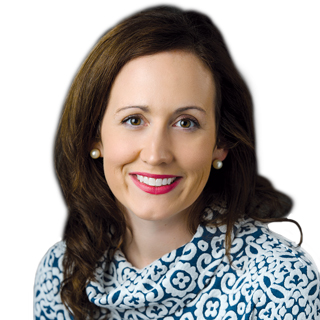
Last year I wrote to you all on Valentine’s Day about the risk and impacts of love on your post-acute care relationships.
I cautioned that when it comes to developing strategic partnerships across the post-acute care spectrum, love can cloud our judgment and that have all experienced the effects and impact love has on “likability,” “favoritism” and — heaven forbid — “loyalty.”
I am back … gifted with the same time slot in February and ready to revisit what love should mean to all of us in the coming year.
Love. It never fails. Right?
I mean we have all heard the verse.
Every wedding ceremony.
Printed in the program.
Read by the favorite aunt, or the friend who had not quite reached “bridesmaid status” or maybe a female friend of the groom’s family?
Either way, they were granted the unique privilege of reciting the I Corinthians verse during the ceremony.
Did you ever notice they cut off verse 8?
“Love. Never. Fails”
How precious and enduring for the newlyweds. Someone needs to speak some truth and knowledge to the googly-eyed lovebirds.Let’s revisit what the full, complete verse says.
1 Corinthians 13:4-8
Love is patient, love is kind. It does not envy, it does not boast, it is not proud.
It does not dishonor others, it is not self-seeking, it is not easily angered, it keeps no record of wrongs.
Love does not delight in evil but rejoices with the truth.
It always protects, always trusts, always hopes, always perseveres.
Love never fails.
But where there are prophecies, they will cease; where there are tongues, they will be stilled; where there is knowledge, it will pass away.
Knowledge? It will pass away?
How could increased knowledge impact our ability to love?
Let’s consider a day in our lives. Providing, loving interdisciplinary clinical care.
As care providers, we all have knowledge in our retrospective disciplines — therapy, nursing, administration, etc.
We, however, also need to ensure that our individual knowledge, does not supersede or interfere with the reason we also entered this field.
Love.
Love for the elders, love in caring for their complex medical conditions, and love in interacting with families and with each other as caregivers.
Individual knowledge or siloed clinical practice as an interdisciplinary team can places us at risk for the self-seeking, and “record of wrong” behaviors that can limit our opportunities to provide the highest level of clinical care.
We are all working together right? With the same goals? Yep!
But in our own lanes …
“That is the job of therapy.”
Or, “Nursing has those areas care planned”
How can we overcome working together as an interdisciplinary team while also respecting and honoring the expertise of all to ensure we are trusting, protecting, hoping and persevering together?
Interprofessionalism in practice and education is the answer.
Interprofessional practice is a term defined by the World Health Organization (WHO) and occurs when multiple service providers from different professional backgrounds provide comprehensive healthcare or educational services by working with individuals and their families, caregivers and communities to deliver the highest quality of care across settings.
Interprofessionalism tasks us with learning together — consider your educational models and who is engaged at what times when for trainings on clinical practice, care pathways, regulatory change and survey.
Interprofessionalism also charges us with having full understanding of scope of practice and roles of all the team members in care.
We learn together, we plan together, and we understand each others scope we are able to show love in the highest sense to those we serve.
We are patient and we are kinder to one another when we reach this level of clinical practice.
“Therapy is targeting improving functional transfers; however, we as a team have those areas fully care planned so everyone understands what is safest for Mr. Jones”
Love — we should all learn to rejoice fully together in its truth because once we do it is true …
Love never fails.
Renee Kinder, MS, CCC-SLP, RAC-CT, is Vice President of Clinical Services for Encore Rehabilitation and is the Silver Award winner in the 2018 American Society of Business Publishing Editors competition for the Upper Midwest Region in the Service/How To Blogs category. Additionally, she serves as Gerontology Professional Development Manager for the American Speech Language Hearing Association’s (ASHA) gerontology special interest group, is a member of the University of Kentucky College of Medicine community faculty, and is an advisor to the American Medical Association’s Relative Value Update Committee (RUC) Health Care Professionals Advisory Committee (HCPAC).




